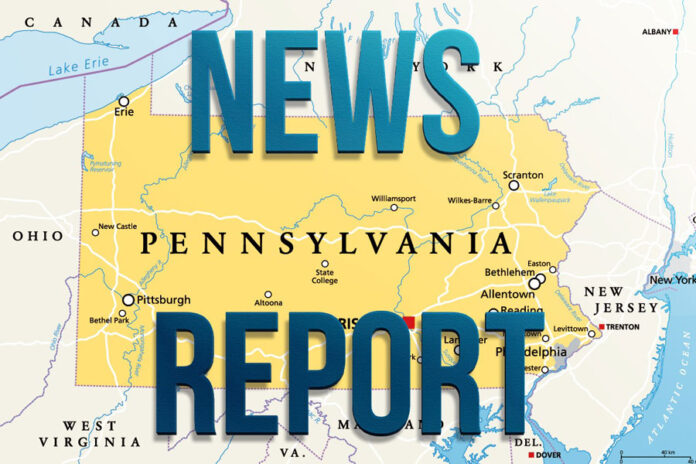Altoona Mirror. May 6, 2024.
Editorial: Lawmakers do right on stalking law
As technology continues to change, our laws and our sense of justice must adapt to meet the new technological landscape.
One such aspect of that evolution is the use of devices by predators to secretly track the locations of the victims — particularly women — that they are stalking.
“Whether it’s a creep at the bar or an angry ex-partner, this is a new avenue that they can use to non-consensually track somebody without their knowledge,” Adam Dodge, CEO of digital safety education company EndTAB and a member of the World Economic Forum’s Digital Justice Advisory Committee, told CNBC more than a year ago as this problem began surfacing.
As a lawsuit filed against Apple for their development and sales of one such device noted, the gadgets “revolutionized the scope, breadth, and ease of location-based stalking.”
We support the efforts by the state House of Representatives and state Senate, reported by the Associated Press, to update Pennsylvania’s laws against stalking to explicitly include secretly using devices to track victims of the stalkers’ harassment.
Legislation passed in the state House on a 199-1 vote would make the offense punishable by up to 90 days in jail. The state Senate’s version of the legislation would make it punishable by up to two years in jail.
Florida and Kentucky acted on this important matter in the past year, and Ohio likewise is deliberating on legislation to address it.
We hope our state’s lawmakers can find a compromise that is tough enough to soundly discourage this intrusive and unsettling behavior and we hope our state government and court system provides police and prosecutors the tools they need to hold stalkers accountable.
To do any less would be an abdication of our government’s responsibilities to public safety.
Pittsburgh Post-Gazette. May 6, 2024.
Editorial: Give 911 operators the title, and the benefits, they deserve
Emergency dispatchers deserve to be recognized as “first responders,” a designation that opens up a broad new category of legal benefits for these vital workers. A bill currently moving through the Pennsylvania legislature would do just that. It would bring Pennsylvania in line with 18 other states that have already fully reclassified their 911 operators.
HB 1463, sponsored by State Rep. Jessica Benham, D-Carrick, amends Pennsylvania Title 35, a broad law concerning emergency management services that doesn’t always include 911 dispatchers as “first responders.” The commonwealth currently includes law enforcement, firefighters, emergency medical services and public health personnel in the category of “first responders.”
911 operators triage the early stage of emergency responses. Their work is just as high-pressure, time-sensitive and traumatic as other emergency personnel, and the science backs it up. Vicarious trauma can be just as physically and mentally damaging as firsthand experience.
Examples of heroic 911 operators are everywhere. During the hours-long standoff in Pittsburgh’s Garfield neighborhood last summer, 911 operators coordinated the safe removal of trapped neighbors. In the trial of the 2018 synagogue shooting in Squirrel Hill, the first testimony came from the 911 operators who literally listened to victims’ last breaths.
State legislation to aid first responders is naturally popular, and numerous bills are currently working their way through Harrisburg. One would guarantee first responders receive workers’ compensation for post-traumatic stress injuries. Another would offer a three-year tax credit totaling $7,500 to all first responders. Without proper reclassification, 911 operators may not benefit from these measures.
Failing to reclassify 911 operators has already hurt them. In the early days of the COVID pandemic, 911 operators lost out on millions of federal dollars that were specifically set aside for first responders — despite these workers’ integral role in emergency response.
State measures supporting first responders are also a matter of practicality, rooted in a larger problem. Finding and retaining vital emergency response staff has long been a struggle, even before the pandemic.
A 2022 survey of hundreds of 911 dispatch centers found that facilities had an average job vacancy rate of 25%. This puts massive pressure on the rest of the staff, and jeopardizes other agencies’ ability to perform their roles to the best of their ability.
Changing the law to make sure 911 operators receive the benefits they deserve would attract more people to the work and give a very needed boost to staff numbers. It would also ensure that future state legislation aiding first responders will benefit them.
Let’s protect our 911 dispatchers, and give them the title and benefits they deserve.
Scranton Times-Tribune. May 5, 2024.
Editorial: State Senate should support pre-canvassing bill
Ever wonder why election results from Florida are typically available just hours after the polls close on Election Day while in Pennsylvania, which has 9 million fewer residents than the Sunshine State, results might take days?
The answer is pre-canvassing. Election officials in Florida can begin opening and processing mail-in ballots 22 days before polling places open, although mail-in totals cannot be released until 30 minutes after the polls close.
In Pennsylvania, mail ballot processing cannot begin until 7 a.m. on Election Day, slowing the overall count. Local election officials have long asked for more time to process mail-in ballots, but legislation has stalled in the General Assembly.
On Wednesday in Harrisburg, the state House passed a bill that would allow pre-canvassing to begin seven days before Election Day. The measure now goes to the Senate.
The legislation has been endorsed by the County Commissioners Association of Pennsylvania, which argues the current system pulls personnel away from doing other important Election Day tasks.
The association’s executive director, Lisa Schaefer, told the Pittsburgh Post-Gazette that county election bureaus now are forced to oversee what amounts to two elections on the same day, managing scores of polling stations while at the same time processing thousands of mail-in votes.
“Adding that pre-canvassing time prior to Election Day is one of the things that would help counties with election administration,” Schaeffer said. “We could focus on one, and then on the other.”
Florida instituted pre-canvassing as part of a host of reform measures following the meltdown of its voting systems in the contentious 2000 presidential election.
Pennsylvania’s experience in 2020, when it took four days to complete a count that confirmed Joe Biden’s victory over Donald Trump, ought to be incentive enough to finally authorize pre-canvassing.
Such delays leave an opening for those who would cynically promote conspiracy theories that call the integrity of our voting systems into question.
The pre-canvassing bill, which passed in the Democratic-controlled House on a party-line vote, will undoubtedly face opposition in the Republican-dominated Senate. Several GOP senators have already expressed opposition to any election reform bill that does not contain a voter ID requirement.
But tying a common-sense measure like expanded pre-canvassing to a contentious partisan issue like voter ID is almost certain to torpedo the bill.
Senate leaders should heed the wide bipartisan support for pre-canvassing and not sacrifice the chance to streamline and strengthen our vote-counting process in the interest of politics.
Thirty-eight states already allow pre-canvassing in some form, according to the National Conference of State Legislatures. With the growing popularity of mail-in voting, it’s time for the Commonwealth to do the same.





















